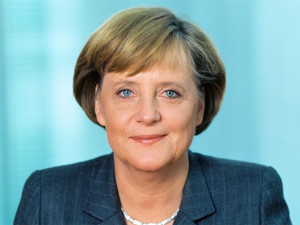Refugee issue impacting on European politics
As the end of 2015 approaches and with more than a million asylum seekers registered in Germany and hundreds of thousands in other European nations, debate about global migration is getting a whole lot more complicated and sometimes bizarre.
In Germany itself, German Chancellor Angela Merkel has pledged to reduce the numbers of new arrivals although she has refused to put a cap on the figures.

German Chancellor Angela Merkel has pledged to reduce the number of new refugee arrivals
Merkel’s promise to slow the flow of refugees rests on medium-to-long term goals, such as tackling the root causes of the mass exodus from crisis zones, increased European solidarity in sharing the refugee burden, and greater cooperation with Turkey, the main launchpad for migrant crossings in to Europe.
As part of the joint action with Turkey, Merkel wants EU members to help resettle 400,000 asylum seekers currently hosted by Turkey.
But she warned European partners against resorting to national action to deal with the current migrant crisis, rather than working towards a common solution.
“Sealing oneself off is not a sensible option in the 21st century,” she told parliament on the eve of an EU summit at which leaders will discuss issues surrounding post-war Europe’s biggest migrant influx.
“That’s why we must resist the temptation to fall back on national solutions,” she said.
Despite opposition from some nations, including Hungary and Poland, Merkel insisted however that the EU must agree on a compulsory “fair distribution of refugees to member states of the EU”.
But Turkey, which is currently sheltering the world’s largest refugee population, has been accused of unlawfully detaining and deporting refugees and asylum-seekers back to war zones in a clear breach of international law.
Amnesty International said in a report that the European Union risked being complicit in the illegal deportations as it had recently pledged 3 billion euros ($3.26 billion) to Turkey in exchange for help in curbing the influx of refugees into the continent.
As part of a pact finalised last month, Turkey – a major transit point for people fleeing Syria, Iraq and Afghanistan – agreed to strengthen its western borders to stop the flow of migrants and refugees toward the EU.
In return, European leaders agreed to “re-energize” long-stalled talks over Turkey’s bid to join the 28-nation bloc.
Meanwhile, Denmark’s parliament, which has already taken a fairly harsh stance toward refugees, is considering a law that would allow authorities to confiscate jewellery from refugees entering the country. The proposal is almost certain to pass parliament.
In neighbouring Holland, a town meeting to discuss whether to build a new centre for migrants had to be abandoned when some opponents rioted.
Protesters in Geldermalsen tore down fences and threw fireworks at police who responded with warning shots.
Dutch State Secretary for Security and Justice Klaas Dijkhoff said the protesters had crossed a line.
“Finding shelter for asylum seekers poses difficult questions but there is a limit when it comes to expressing your opinion,” he said on Dutch TV.
Norway has created a new immigration and integration ministry in response to a large influx of asylum seekers and migrants.
Prime Minister Erna Solberg says the numbers of immigrants had put “too much pressure” on Justice Minister Anders Anundsen, whose portfolio has been split with the creation of the new ministry.
Sylvi Listhaug of the right-wing Progress Party — the junior partner in the governing, right-leaning coalition — on Wednesday became the new minister for immigration and integration.
Norway has received more than 30,000 asylum seekers in 2015, mainly from Syria, Afghanistan, Iraq and Eritrea.
In Sweden, support for the anti-immigration Sweden Democrats has surged to nearly 20 per cent over the past six months, a recent poll showed, as the country turns to tents and ski resorts to house record numbers of asylum seekers.
The Sweden Democrats has doubled its support in a year and now holds the balance of power in parliament as the third largest party – although cooperation between the other parties has so far kept them out in the cold. The next election is due in 2018.
Laurie Nowell
AMES Australia Senior Journalist












